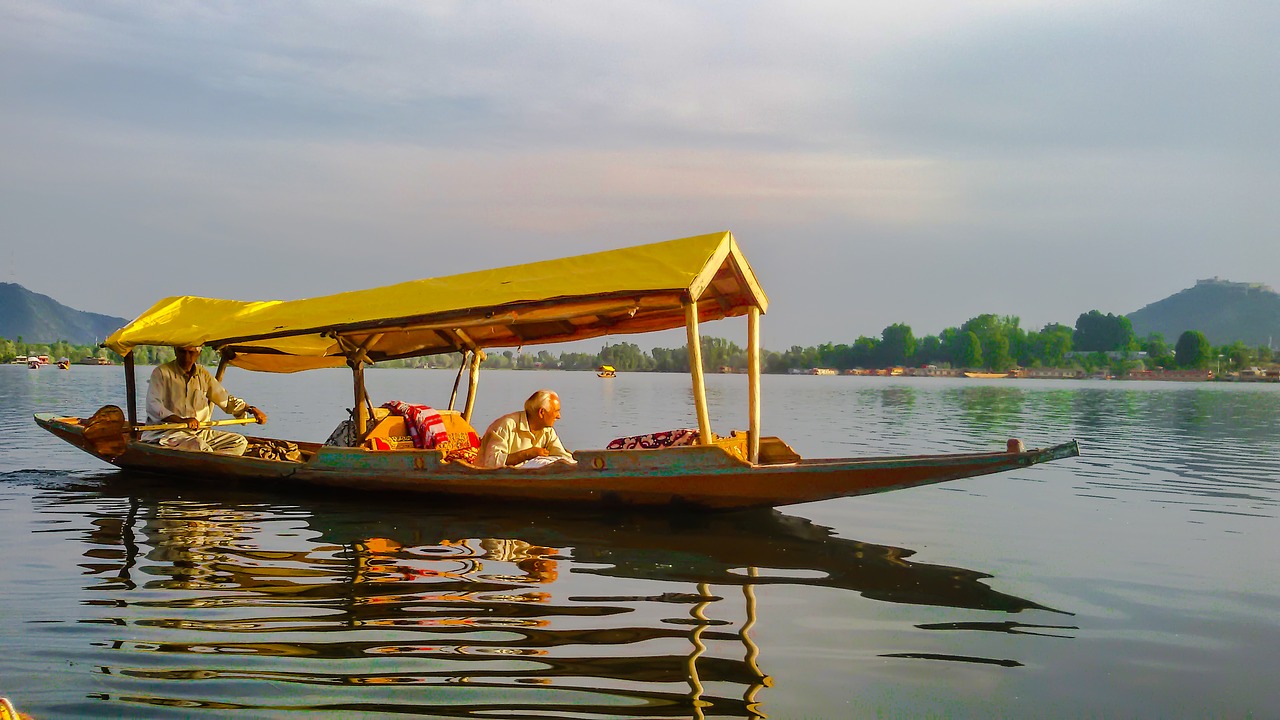The recent action against Kashmiri students for celebrating Pakistan’s victory in a cricket match is yet another example of gross misuse of the law against Kashmiris. If the government intends to bring back a semblance of normalcy to the valley, it must shed draconian laws and try to win the hearts of the people.
“Terrorism is one of the manifestations of increased lawlessness and cult of violence… A ‘terrorist’ activity does not merely arise by causing disturbance of law and order or of public order.” This is the definition for terrorism the Supreme Court expounded in the Hitendra Vishnu Thakur v. State of Maharashtra case, which was recently referred to by the Delhi High Court while granting bail to students Natasha Narwal, Devangana Kalita and Asif Iqbal Tanha.
A few days after Union Home Minister Amit Shah held his “mann ki baat” with the youth of Kashmir, students from Kashmir were slapped with the draconian anti-terror law – the Unlawful Activities Prevention Act (UAPA) – and may be charged with sedition, all for celebrating Pakistan’s glamorous victory in the recent T20 cricket match with India.
Police have registered cases under the UAPA against the management and students of two colleges in Jammu and Kashmir, while also arresting three students who are to be charged with sedition and other violations in Agra.
Sadly, this is not the first time that Kashmiri students have paid a price for celebrating a Pakistani victory in cricket, with instances dating back to the 1980s. The problem has a lot to do with not just the attitude of the Indian government, but also Kashmir’s sense of belonging in India, as a state which has been ravaged by war and unease for as long as its residents can remember with no end in sight.
Gross Misuse of the Law
Let’s first look at the use of the UAPA. The Delhi High Court’s observations in June this year are noteworthy: Notwithstanding the fact that the definition of ‘terrorist act’ in the UAPA is “wide and even somewhat vague”, the phrase ‘terrorist act’ cannot be permitted to be casually applied to criminal acts that fall squarely within the definition of conventional offences, the Court said.
Given the fact that celebrating a cricket match is in no way a criminal offence, let alone an act of terrorism, it is easy to understand how the absence of a definition of terrorism in the UAPA is being exploited once again, with the criminal procedure serving as the punishment.
Uttar Pradesh Chief Minister Yogi Adityanath tweeted that the three Kashmiri students arrested in his state will be charged with a criminal offence under Section 124A (sedition) of the Indian Penal Code. But this too would not hold any weight as per the famous Kedar Nath Singh v. State of Bihar judgement of 1962, which has been reiterated many times.
The judgement, while upholding the sedition law, emphasised that it can only be applied against the subversion of the government through the incitement of violence or the intention to create public disorder. The Uttar Pradesh government now has the task of explaining how a few WhatsApp messages celebrating Pakistan’s victory in a cricket match amounts to any of the two.
“If they went through the various judgements on sedition, celebrated judgements, the Chief Minister would have been well-advised not to issue such a tweet,” remarked the retired Justice Deepak Gupta in an interview with The Wire, adding that Adityanath’s tweet was “against the law of the land”. “In sports, why can’t you support the other side? That’s the spirit of the game,” Justice Gupta said, rubbishing all the charges against the three students held in Agra.
But apart from the technicalities of the charges, one must take into consideration the plight of the Kashmiri people and the hollow and counterproductive policy of forcibly imposing patriotism in the union territory.
Absence of the Law
An Indian citizen in Kerala, for example, believes in the structure of governance in the country, and their sense of belonging to the country emanates from its constitutional elements. In other words, a person from Kerala can identify themselves as a civic nationalist. They believe that the rule of the law and constitutional rights shall protect them.
By contrast, in Kashmir, many instances of blatant human rights abuse have been left unresolved and swept under the rug. In 1990, the Central Reserve Police Force (CRPF) fired upon the peaceful funeral procession of Mirwaiz Moulana Muhammad Farooq, resulting in more than 60 deaths during what is called the Hawal Massacre. The announcement of a time-bound inquiry followed but in vain.
It was finally up to the State Human Rights Commission (SHRC) to run an inquiry in 2017 after its order to the government to furnish a report was left unattended. The Commission’s report found that 15 CRPF personnel were guilty of “indiscriminate firing” and the Court of Inquiry held them responsible for the killing. Yet, the SHRC could not ascertain if any action had been taken against them.
Successive reports by international bodies and organisations such as the United Nations have highlighted the state of human rights in Kashmir. On the other hand, outside Kashmir, in cases such as the Delhi riots, not only were civil society and the judiciary able to course-correct the system, they were also able to make their apprehensions heard. Probes and judicial proceedings have been conducted and the Delhi High Court even called out the Delhi police for its shoddy investigation. As the case moves on, and those who were arrested on flawed evidence continue to get bail, rule of law retains some grasp over society. Sadly, one cannot say the same for Kashmir.
With the abrogation of Article 370 still looming over the union territory, and the recent spate of killings adding to the turmoil, the government should have responded more sensitively to the latest cases following the Pakistan cricket match. The picture of the students’ impoverished families struggling for legal representation, as lawyers boycotted them for being “anti-national”, does not bode well for the promise of a “Naya (new) Kashmir”.
In 2018, the Madras High Court had observed that it is a lawyer’s duty to represent a client irrespective of the crime. After all, the right to representation is an extension of the fundamental right to a fair and speedy trial guaranteed under Article 21. To quote the firebrand lawyer, Ram Jethmalani, “I decide according to my conscience who to defend. A lawyer who refuses to defend a person on the ground that people believe him to be guilty is himself guilty of professional misconduct.”
Building Trust
Former Kashmiri chief minister Mehbooba Mufti rightly notes that patriotism and loyalty are cultivated with compassion and not by “wielding the baton or by the barrel of a gun”. All that the government has achieved through its indiscriminate use of draconian laws is further alienation of the youth of Kashmir, fueling more hate and possible violence.
One may disagree with the actions of the students, but as Justice Deepak Gupta points out, moral opinions are different from what is laid down by the law. Abusing legal provisions like sedition and the UAPA to ruin the lives of students and their families, right after the Home Minister’s visit, shows that the government has little faith in its own handling of Kashmiri affairs. If the government intends to bring back a semblance of normalcy to the valley, it must shed authoritarian tools and try to win the hearts of the people. It could start by ending the usage of grave laws for such paltry matters.
Siddharth Mohan is a student at St. Joseph's College Autonomous, Bangalore. He is currently pursuing a Bachelor's degree in Economics, Political Science and Sociology.


